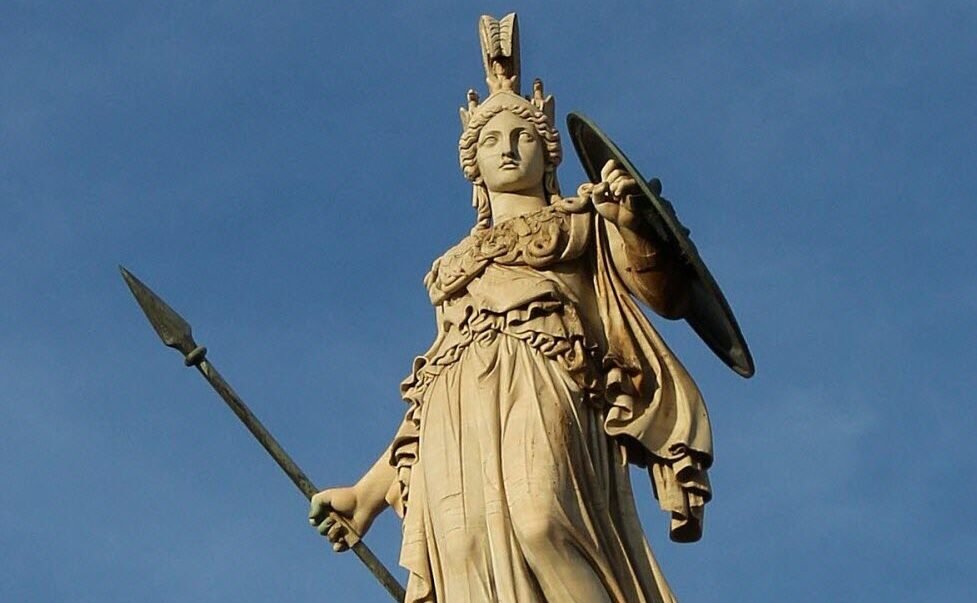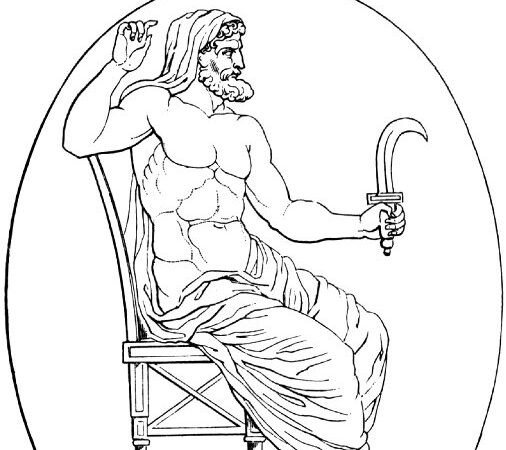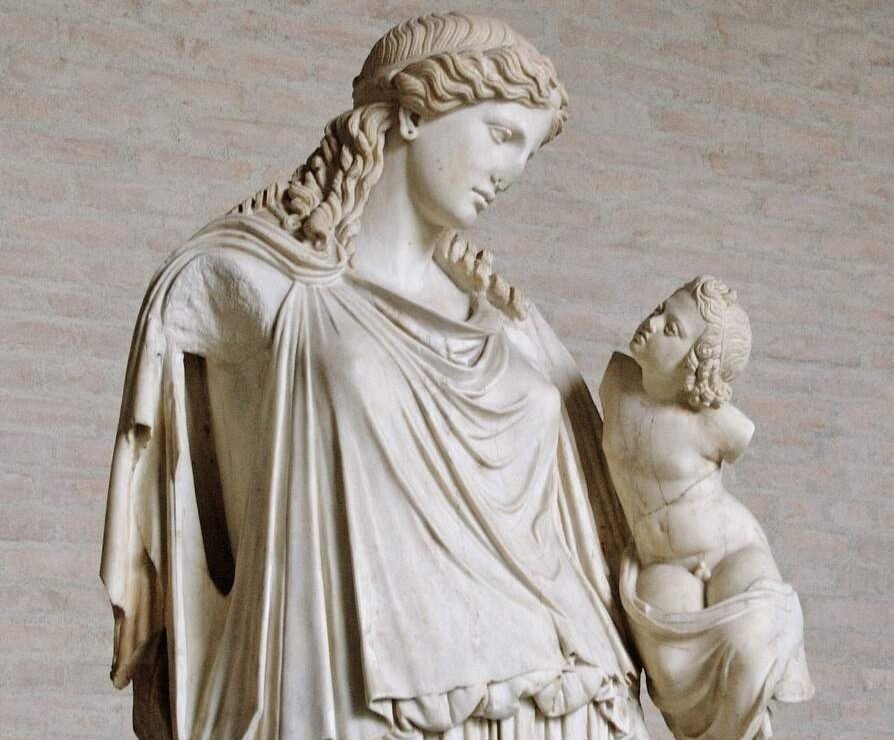Ancient Greece is a civilization of Antiquity of peoples of Greek language and culture developed in Greece and in the western part of Asia Minor, then, following several phases of expansion, in other regions of the Mediterranean basin (Cyprus, Sicily, southern Italy, Egypt, Cyrenaica) and the Middle East (Syria, Palestine), constituting points of establishment as far as Spain and France to the west and Afghanistan (Bactria) to ballast.
This civilization of Greek culture developed during the last part of the “dark centuries” (c. 1200-800 BC), from the rubble of the Mycenaean civilization, and took shape in particular during the archaic era. (c. 800-480 BC), and fully developed during the Classical period (480-323 BC) and the Hellenistic period (323-31 BC). VS.). The Roman conquest (between 220 and 31 BC) marks the end of Greek political independence, but ancient Greek culture retained real dynamism under Roman domination, gradually evolving towards Byzantine civilization from the 4th century onwards. century.

Contenus
ToggleFestivals of Ancient, Mycenaean and Hellenistic Greece
Holidays of the month
| Mymonday | Killtuesday | Wednesdaywednesday | ThuThursday | Frifriday | Satsaturday | Sunsunday |
|---|---|---|---|---|---|---|
1July 1, 2024 | 2July 2, 2024 | 3July 3, 2024 | 4July 4, 2024 | 5July 5, 2024 | 6July 6, 2024 | 7July 7, 2024 |
8July 8, 2024 |
9July 9, 2024●(1 event) Libation to Athena –  On this day, the Greeks made a libation to Athena. Athena was the great Olympian goddess of wise counsel, war, city defense, heroic effort, weaving, pottery, and other crafts. She was depicted crowned with a crested helmet, armed with a shield and spear, and wearing the serpent-edged igis cloak wrapped around her chest and arm, adorned with the monstrous head of the Gorgon . #mythology #myth #legend #calendar #9July #Athena #Athenes | 10July 10, 2024 |
11July 11, 2024●(1 event) Kronia –  On this day, the Greeks celebrated Kronia in honor of Kronos as the god of harvests. This marked the end of the grain harvest. The practice was quickly abandoned during the Classic period. #mythology #myth #legend #calendar #Kronos #July 11 | 12July 12, 2024 | 13July 13, 2024 |
14July 14, 2024●(1 event) Synoikia –  On this day, the Greeks celebrated Synoikia. This festival took place during the first important month of the Athenian year and served to remind people of their history and origins, the Synoikia, literally "houses together", was an ancient celebration commemorating the unification of Attica by Theseus. This very ancient festival was gradually abandoned during the Athenian domination. #mythology #myth #legend #calendar #synoikia #Greece #July 14 |
15July 15, 2024 | 16July 16, 2024 | 17July 17, 2024 | 18July 18, 2024 | 19July 19, 2024 | 20July 20, 2024 | 21July 21, 2024 |
22July 22, 2024●(1 event) Panathenaia –  On this day, the Greeks celebrated Panathenaia. The first festival of the year, the Panathenaea was the celebration of the city's anniversary. Beginning in the 7th century BCE, the annual festival, the Panathenaia ta mikra (Little Panathenaia), involved an impressive procession from outside the city walls to the Acropolis. This procession was represented on the frieze of the Acropolis. The main purpose of the procession was to convey the new peplos for the image of Athena, but in the classical period the festival acquired increased political importance. #mythology #myth #legend #calendar #Panathenaia #Athens #July 22 | 23July 23, 2024 | 24July 24, 2024 | 25July 25, 2024 | 26July 26, 2024 | 27July 27, 2024 | 28July 28, 2024 |
29July 29, 2024 |
30July 30, 2024●(1 event) NoumeniaJuly 30, 2024  On this day, the Greeks celebrated Noumenia, the New Moon marking a new month. The Noumenia is the second day of a three-day family festival held every lunar month – the Deipnon of Hekate, then the Noumenia, followed by the Agathos Daimon. #mythology #myth #legend #calendar #noumenia |
31July 31, 2024●(1 event) Herakleia –  On this day, the Greeks celebrated Herakleia. A celebration of the death of Heracles by athletes in the Kynosarges gymnasium, famous for the fact that it was the only one in Athens open to non-citizens. #mythology #myth #legend #calendar #Herakles #Athens #Greece #July 31 | 1August 1, 2024 | 2August 2, 2024 | 3August 3, 2024 | 4August 4, 2024 |
Cultural areas in ancient Greece
Ancient Greece is a civilization of Antiquity of peoples of Greek language and culture developed in Greece and in the western part of Asia Minor, then, following several phases of expansion, in other regions of the Mediterranean basin (Cyprus, Sicily, southern Italy, Egypt, Cyrenaica) and the Middle East (Syria, Palestine), constituting points of establishment as far as Spain and France to the west and Afghanistan (Bactria) to ballast.
This civilization of Greek culture developed during the last part of the “dark centuries” (1200-800 BCE), from the rubble of the Mycenaean civilization, and took shape in particular during the archaic era (800-480 BCE), and fully developed during the Classical period (480-323 BCE) and the Hellenistic period (323-31 BCE). The Roman conquest (between 220 and 31 BCE) marks the end of Greek political independence, but ancient Greek culture retained real dynamism under Roman domination, gradually evolving towards Byzantine civilization from the 4th century onwards.
Ancient Greek civilization exercised considerable influence in the ancient world, particularly after the conquests of Alexander the Great and during the Hellenistic era when it dominated and influenced the civilizations of the Middle East, where significant centers of Greek culture (Alexandria, Antioch). In the Mediterranean basin, Greek culture played a decisive role, through the influence it exerted on the civilization of ancient Rome, where Greek became the language of knowledge used by the elites, to the point that we speak regularly of “Greco-Roman” culture. It is through this means that many political and cultural productions of the ancient Greek world had a major role in the development of Western civilization.
The Greek world therefore remained very dynamic culturally under Roman domination, and the cities remained the fundamental framework of political and social life. During Late Antiquity (c. 250-700) the Eastern Roman world, of Greek culture, gradually took on its autonomy around Constantinople, which became the capital of the Eastern Roman Empire (or Byzantine Empire) and the new pole culture of the Greek world. Christianization, which led to the disappearance of the Greek polytheistic religion, and the progressive disintegration of the institutions of ancient Greek cities, at the same time, marked the end of ancient Greek civilization.
Greek cultural influence was also exerted on the intellectual life of the medieval Arab-Muslim world, and especially in the West where its status as a reference was confirmed on numerous occasions subsequently, several of the aspects of ancient Greek culture having served as sources of inspiration. Often idealized, it is commonly invested with the status of founding culture for the Western world. The archaeological rediscoveries made on Greek soil since the 19th century and new perspectives on ancient Greek texts transmitted to the modern era have made it possible to deepen and renew the knowledge and understanding of this civilization.